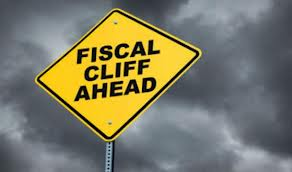Media

5 Ways to Balance the Budget Without Increasing Taxes
State spending is at an all-time high, but calls for even more spending persist, despite Pennsylvania’s precarious fiscal situation.
Pennsylvania doesn’t need more government spending to improve the quality of life in our state. In the heat of budget season, this message tends to get lost in the shuffle. This year is no different.
Higer taxes may be on the horizon too. Pennsylvanians labor under the 10th highest tax burden in the country, but that hasn’t stopped government unions—and their allies— from pushing for a $1 billion tax increase.
Instead of sticking taxpayers with the tab, lawmakers should focus on balancing the state’s budget by controlling excessive and harmful spending. Below are five ideas to help achieve this goal.
1. Don’t Increase Spending: A large portion of the nearly $1.3 billion deficit is the result of proposed spending increases in Governor Corbett’s budget. If lawmakers were to forgo the increases, a significant amount of the projected deficit would be eliminated. Government should not be spending money it doesn’t have.
2. Utilize Part of the Legislative Reserve Fund: According to an audit, lawmakers have $153 million sitting in their reserve fund. While a portion of this may be necessary to continue operations during budget disputes, lawmakers should consider transferring some of this money into the general fund to bridge the budget gap. This move is not unprecedented, as reserve funds have been transferred to the Hazardous Sites Cleanup Fund and Accountability Block Grants for public schools.
3. Eliminate Corporate Welfare: Government grants and loans given directly to businesses harm real people and hinder job creation. The Commonwealth Foundation has identified more than $700 million in grants, loans, and special tax credits which should be phased out, preventing taxpayers from having to pay more for years of government overspending.
4. Reform Prevailing Wage Mandates: Pennsylvania’s Prevailing Wage Act mandates contractors pay inflated wages on most state or local government-funded construction projects. Mandating the highest “prevailing” wages on qualifying government construction projects has increased costs by 10 percent to 30 percent more than what contractors would pay workers for identical projects funded with private dollars. If the mandate were ended, taxpayers could save upwards of a billion dollars.
5. Partner with the Private Sector: Pennsylvania owns 117 state parks and 24 museums and historical sites. Contracting out management of these locations would realize real savings and free up revenue for other areas of the budget.
For more ideas on how to fix Pennsylvania’s fiscal problems, read our report, Blueprint for A Prosperous Pennsylvania.